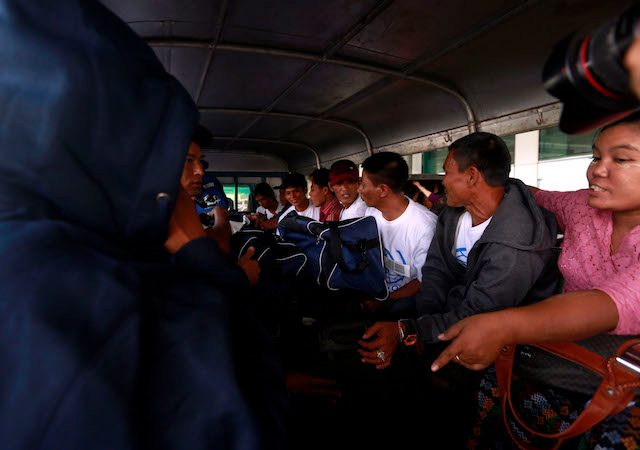SUMMARY
This is AI generated summarization, which may have errors. For context, always refer to the full article.

JAKARTA, Indonesia – Slavery is far from dead.
Nearly 46 million workers including children are living as slaves globally, 66% of which are found in Asia Pacific, according to 2016’s Global Slavery index released on Tuesday, May 31.
The index, made by Walk Free Foundation, a human rights group based in Australia, has increased its estimate of people who cannot refuse work or leave because of threats, violence, coercion, abuse of power or deception from 35.8 million in 2014, to 45.8 million – 28% more people than previously estimated.
The survey was based on 42,000 interviews and conducted in 25 countries, covering 44% of the global population.
The report also found that modern slavery exists in 167 countries with people being enslaved through human trafficking, forced labor, debt bondage, forced or servile marriage or commercial sexual exploitation.
Increase in Indonesia
In Indonesia, approximately 736,000 workers, or 0.3% of population are trapped in modern-day slavery.
It ranks 39th globally and is the 7th worst in Southeast Asia after Cambodia, Myanmar, Brunei, Thailand, Malaysia and the Philippines. Issues include the exploitation of foreign domestic workers as well as forced child marriage.
Compared to the previous survey in 2014, the number of slaves in Indonesia grew 22,000 despite the fact that the nation has improved in terms of ranking.
The improvement is a result of the Indonesian government’s work in 2015 on rescuing and repatriating 2,000 trafficked fishermen working from Thai vessels.
The report also highlighted Indonesia’s role with Australia in co-chairing the Sixth Ministerial Conference of the Bali Process, which resulted in a Ministerial Declaration pledging a comprehensive regional approach to managing mixed migration flows and ensuring humane labor practices within the global supply chains.
It also pointed out that in April last year, Indonesia announced a domestic workers ban in several countries within the Middle East and Gulf after numerous cases of exploitation of its nationals.
Call to action
Worldwide, India has the largest number of modern slaves of any country. North Korea ranked as the largest number relative to its population, with 4.37% of its 25 million population estimated to be in slavery, representing one in every 20 people.
“Governments need to look more closely at illicit labor recruitment, crack down on the illegal companies that provide conduit in which people end up in slavery, and penalize the companies and individuals that are using bonded labor, either directly or in their supply chains,” the foundation said in a statement.
“At the same time, it is important that we tackle the conditions that drive labor migration by creating opportunities within home countries.”
Businesses were also pointed out as a huge factor driving slavery.
“Businesses that don’t actively look for forced labor within their supply chains are standing on a burning platform. Business leaders who refuse to look into the realities of their own supply chains are misguided and irresponsible,” Mr Andrew Forrest, Chairman and Founder of Walk Free Foundation said. – Rappler.com
Add a comment
How does this make you feel?
There are no comments yet. Add your comment to start the conversation.